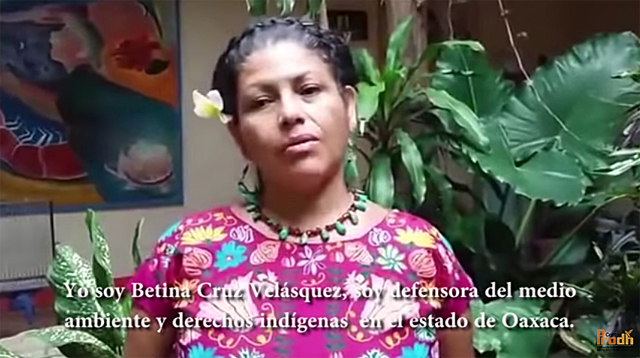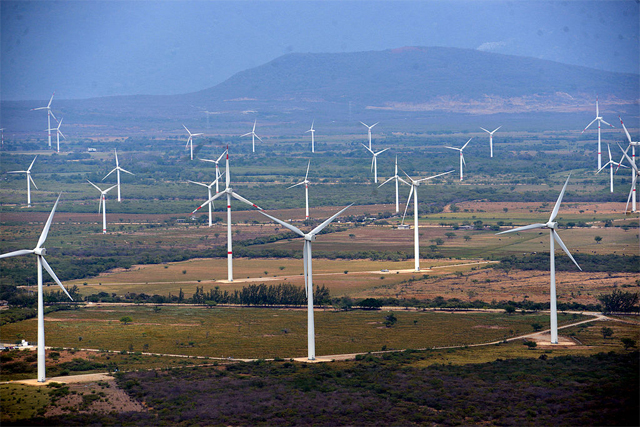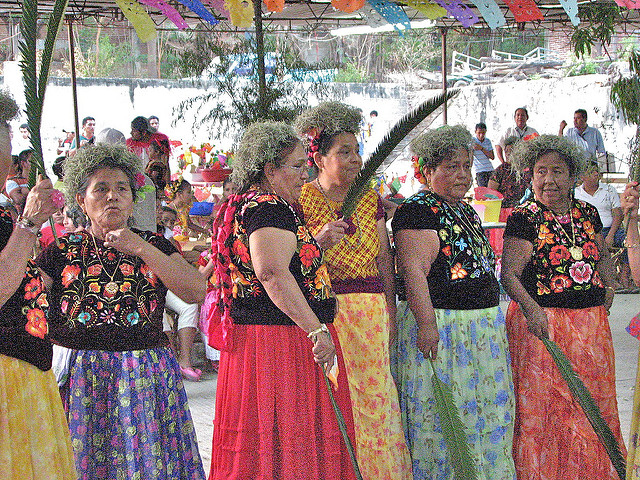Bettina Cruz Velázquez, a fearless leader of the Zapotec land rights movement in Oaxaca State, spoke in Seattle in early October about the struggle against giant energy companies. Her description of the campaign to protect indigenous people from exploitation by the developers of huge wind plants on the Isthmus of Tehuantepec was described last week by Patti Kilpatrick in a news release published by The Seattle Globalist.

A news story a year later in lapress.org quoted Ms. Cruz directly. “The companies divided up our land, like the Spanish when they came to America,” she said. “I recognize there is worldwide concern about climate change, but what is motivating the companies is turning our air into money. Green energy is a business that profits from cheating the communities; they destroy our way of life and menace our food sovereignty, forcing us into displacement.” Her direct, fiery style is clear from her words.

According to the news report last week, in her Seattle speech she again lambasted the wind energy companies, which are supported by the local and state governments in southern Mexico as well as the federal government, for taking lands owned by the indigenous people. She explained that the wind plants in Oaxaca produce 77 percent of Mexico’s wind energy. It is used by the mining concessions in the mountainous regions of the state and is sold to large corporations such as Walmart.
But the group that she heads, called APOYO (Original People of the Oaxacan Isthmus in Defense of Territories) is not opposed to the development of clean wind energy. Ms. Cruz stated that the indigenous people wish to live on their traditional lands in a clean environment. However, she told her Seattle audience, “we are opposed to the way in which wind turbines are being installed here without any free, prior and informed consultation of our indigenous communities, as per Mexican and international law.”

She pointed out that the wind plant developers have not included the indigenous people of the Isthmus of Tehuantepec in meaningful land use decisions and that there have been no environmental assessments by neutral evaluators. The wind plants that have already been built are having a negative impact on people’s health, on farm animals, on fisheries, on the economy, and perhaps most significantly, on the culture of the indigenous people. Her words would resonate with those who have been following the opposition by the Native Americans at the Standing Rock Sioux reservation to a different energy project, the Dakota Access Pipeline. Both projects suggest an arrogance by energy companies toward indigenous societies whose lands are in the way of their developments.
The companies have conducted meetings in Spanish, despite the fact that many of the people are only fluent in one of the Zapotec languages. They have made false promises to the people, she charged, which they later ignored. As a result, they have deprived the people of their lands and their livelihoods. Because of her vocal opposition to the developers, she was put in jail under trumped up charges in 2012 related to a demonstration that she did not even attend. The charges were finally dropped three years later. She received a threat just a week before her trip to Seattle.

Ms. Kilpatrick, the Seattle reporter, quoted a lengthy statement by Ms. Cruz as to why she has gotten into confronting the energy industry. She clearly speaks for the future of the indigenous people who otherwise would not have a voice and who are intimidated by hired goons. She charged that the companies bribe local officials, trick the indigenous landowners, violate contracts, and present invalid studies.
Ms. Cruz added that the state and federal governments do not advocate effective consultations with the indigenous communities. The governments have recently designated the Isthmus of Tehuantepec as a “special economic zone” where subsidies will be offered to the energy companies. The federal government is going to offer additional land to promote more wind farms in the area. The Zapotec and the other indigenous people of the Isthmus are more concerned than ever.